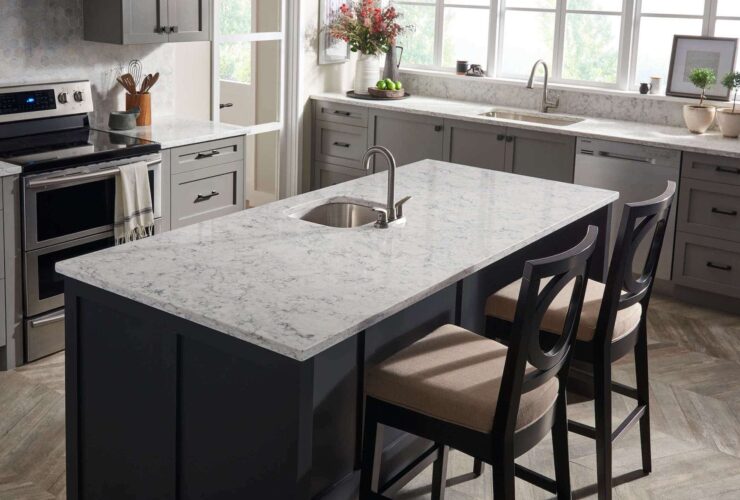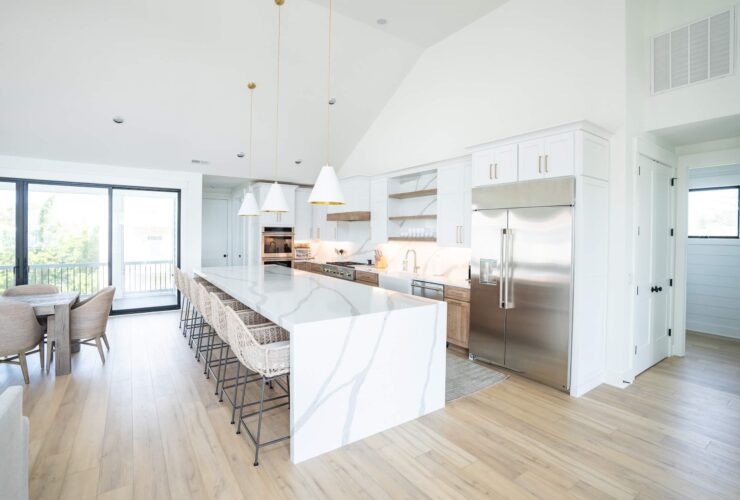Pros & Cons of Granite Countertops
Granite countertops have been a popular choice in kitchens and bathrooms for years, appreciated for their natural beauty, durability, and variety of colors. However, before deciding on granite, it’s important to consider both its pros and cons. This article offers a detailed look at what makes granite countertops appealing, as well as the potential downsides, so you can decide if they’re right for your home.
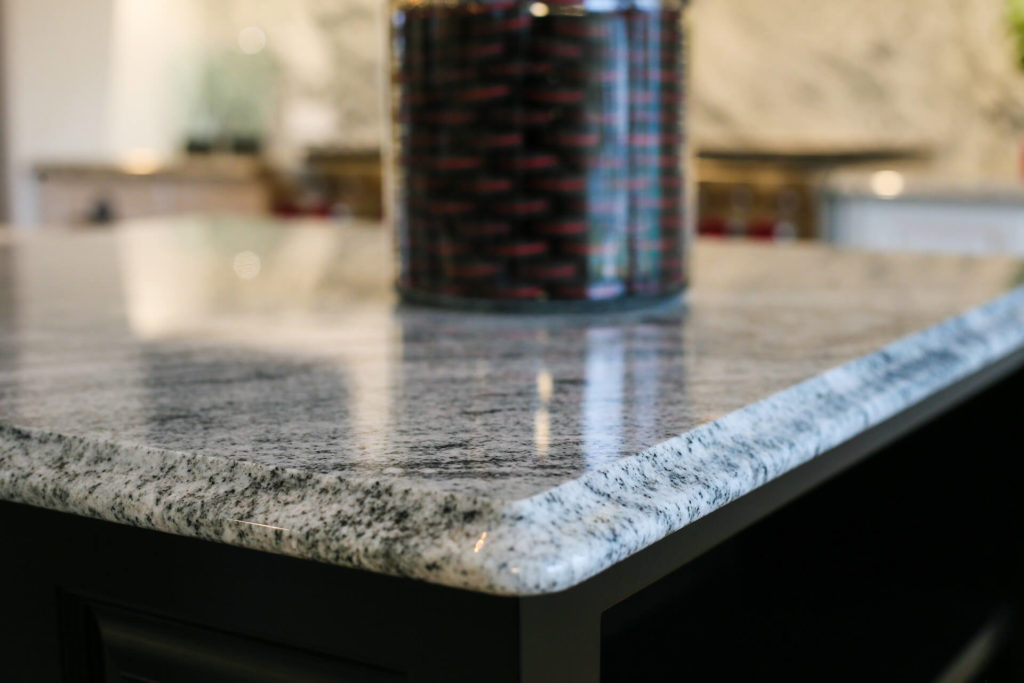
What Are Granite Countertops?
Granite is a natural stone, formed deep within the Earth’s crust, made up of minerals such as quartz, feldspar, and mica. These minerals give granite its unique speckled appearance, making each slab distinct and attractive to homeowners who want something one-of-a-kind.
How Are Granite Countertops Made?
Granite starts as large blocks of stone that are quarried from the earth. These blocks are then cut into slabs and polished until they shine. The slabs are trimmed to fit the dimensions of your kitchen or bathroom, and the edges are shaped according to your preferences. After this, they are ready to be installed in your home.
Why Choose Granite? The Pros of Granite
Timeless Beauty: Granite’s natural patterns and wide range of colors make it a standout choice for countertops. Each slab has its own character, ensuring your countertop is truly unique. Whether you prefer bold designs or something more subtle, granite has options to suit your style.
Durability: Granite is known for its strength, making it ideal for busy kitchens and bathrooms. With proper care, granite countertops can last a lifetime.
Heat Resistance: One of the key advantages of granite is its ability to withstand heat. You can place hot pots and pans directly on the surface without causing damage, which is a big plus for those who love to cook.
Scratch Resistance: Granite is also resistant to scratches. While it’s still wise to use a cutting board to protect both your knives and the countertop, granite can handle minor scrapes with ease.
Variety: Granite comes in many colors and patterns, giving you plenty of options to match your vision. Whether you want something light and airy or dark and dramatic, you’re likely to find a slab that fits your needs.
Adds Value to Your Home: Granite countertops are often seen as a luxury feature, which can increase your home’s resale value. Buyers are generally willing to pay more for a home with granite countertops.
Low Maintenance: Granite is relatively easy to care for. With regular sealing and basic cleaning, it stays looking great without a lot of effort.
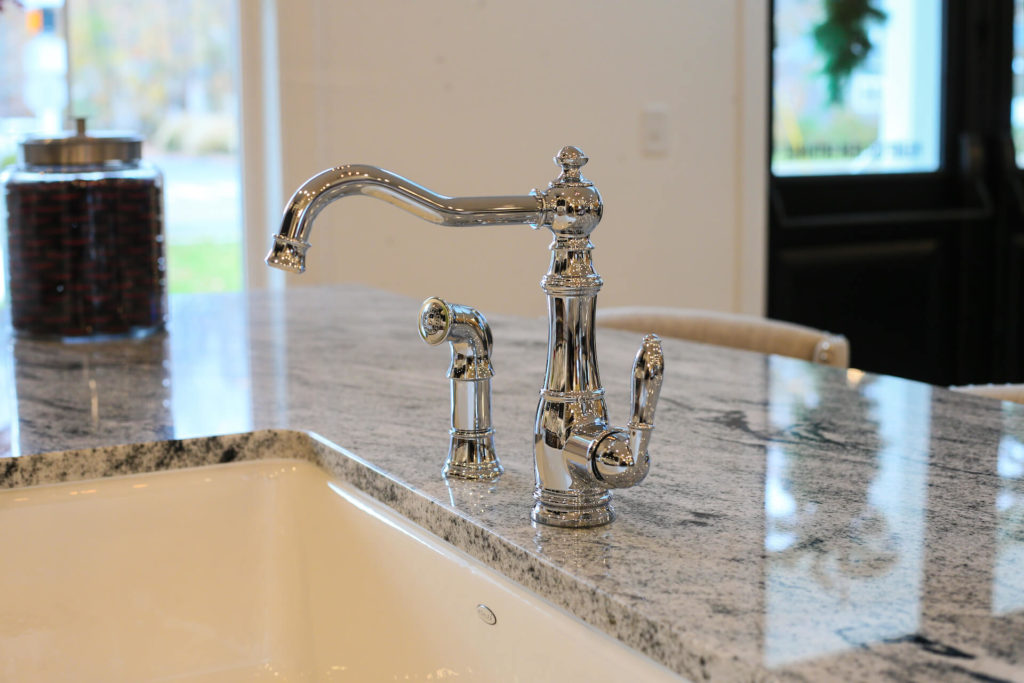
The Drawbacks of Granite Countertops
High Cost: One of the main disadvantages of granite is its price. High-quality slabs, especially those with rare colors or patterns, can be expensive. Professional installation is also necessary, which adds to the overall cost.
Requires Regular Sealing: Granite is porous, so it needs to be sealed regularly to prevent stains and bacteria from getting into the surface. Depending on how often you use your countertops, resealing might be needed every one to two years.
Prone to Chipping: While granite is strong, it can crack if hit with a heavy object, especially near the edges. Fixing a chipped granite countertop can be difficult and might require replacing the entire slab.
Heavy Material: Granite is heavy, so your cabinets and floors need to be strong enough to support it. In some cases, additional structural support may be required, which can complicate the installation.
Limited Color Options: Although granite offers a variety of colors, it doesn’t have as wide a range as some engineered materials like quartz. If you’re looking for a very specific color, granite might not have what you’re after.
Difficult to Repair: If your granite countertop gets damaged, repairs can be challenging. It’s hard to blend a repair seamlessly with the rest of the slab, and sometimes the only solution is to replace it entirely.
Environmental Impact: Granite is a natural resource, and its extraction and processing have environmental consequences. Quarrying, cutting, polishing, and transporting granite are energy-intensive processes, and since granite is often imported, it has a significant carbon footprint.
Is Granite the Right Choice?
Deciding whether granite countertops are right for you depends on your specific needs and preferences. Consider the following:
- Budget: Granite is a significant investment. Ensure it fits within your budget for both material and installation costs.
- Maintenance: Be prepared for regular sealing and proper cleaning to keep your granite countertops in top condition.
- Aesthetic Preferences: If you value natural beauty and unique patterns, granite might be the perfect choice.
After investing time and resources into your kitchen remodel, proper maintenance is essential for preserving its beauty and functionality. Establishing a regular cleaning routine, addressing minor repairs promptly, and scheduling professional maintenance checks from Coastal Countertops can extend the lifespan of your renovated kitchen for years to come.
After investing time and resources into your kitchen remodel, proper maintenance is essential for preserving its beauty and functionality. Establishing a regular cleaning routine, addressing minor repairs promptly, and scheduling professional maintenance checks can extend the lifespan of your renovated kitchen for years to come.
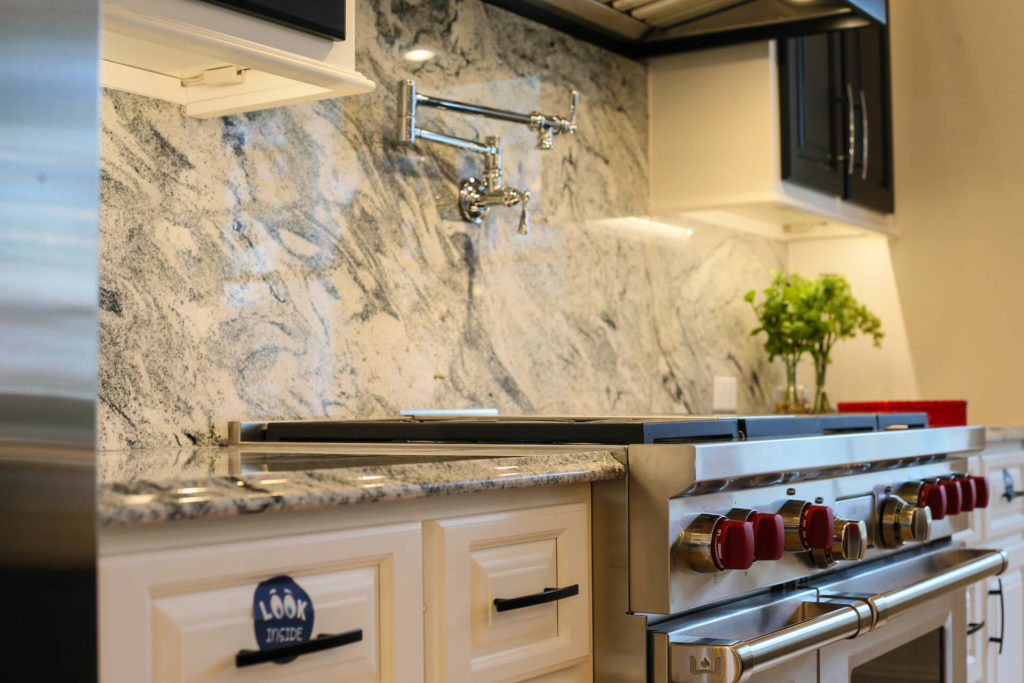
FAQs
- Do granite countertops need to be sealed?
- Yes, granite countertops should be sealed to prevent staining and maintain their appearance. The frequency of sealing depends on the type of granite and its usage, but typically once a year is sufficient.
- What are some eco-friendly options for kitchen remodeling?
- Eco-friendly kitchen remodeling options include using sustainable materials such as butcher block or recycled glass for countertops, installing energy-efficient appliances, and incorporating low-VOC paints and finishes.
- How do I choose the right granite slab for my countertops?
- To maximize storage in a small kitchen, consider utilizing vertical space with tall cabinets or shelving, installing pull-out drawers and organizers, and opting for multifunctional furniture such as kitchen islands with built-in storage.
- Are granite countertops available in different colors?
- Granite comes in a wide range of colors and patterns, from subtle whites and grays to bold reds, greens, and blues. Each slab is unique, so you can find a color and pattern that perfectly suits your style.

